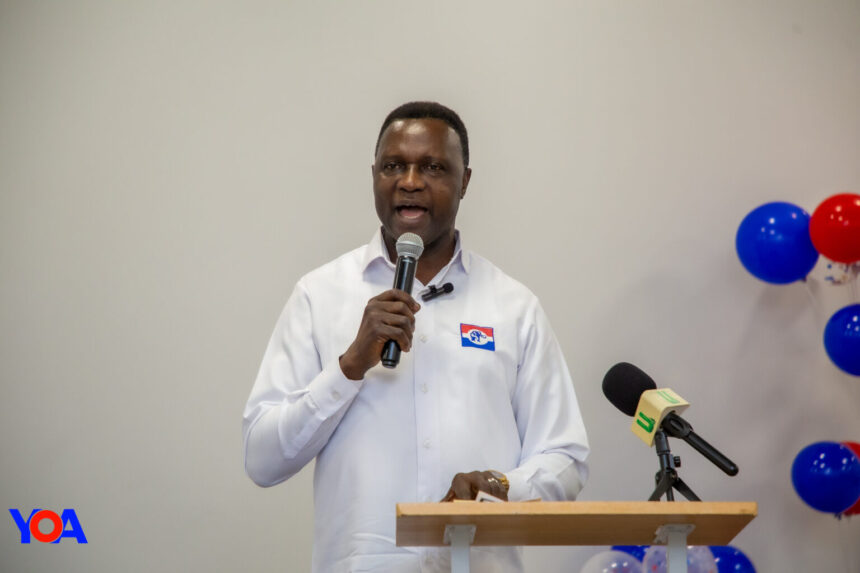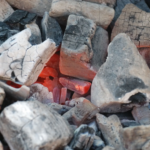Former Education Minister Dr. Yaw Osei Adutwum believes Ghana’s decades long battle against illegal mining can be won in classrooms rather than just at mining sites, proposing an education centered intervention that targets school dropouts before they’re lured into the destructive trade.
Speaking to delegates at Abuakwa during his Hope Tour campaign through the Ashanti Region, the New Patriotic Party (NPP) presidential hopeful outlined a strategy that connects educational retention directly to galamsey prevention, an approach born from firsthand observations in mining communities.
“When I visit illegal mining towns, we conduct surveys to determine how many children progress to senior high school after completing junior high. In Adansi Asokwa, for instance, only 61 out of 100 made it to senior high school. The rest often end up at galamsey sites,” he revealed.
Those stark numbers align with broader research showing illegal gold mining operations have significant effects on school dropout rates, creating educational challenges that governments and educationalists have fought for decades to overcome. What makes Adutwum’s approach notable is his emphasis on preventive intervention during the critical transition between junior and senior high school, precisely when many young people are most vulnerable to the economic temptations of illegal mining.
His proposal includes deploying counselors into junior high schools to engage parents, teachers and the Ghana Education Service (GES), working alongside the Ministry of Lands and Natural Resources as part of a comprehensive intervention. This cross ministry coordination represents a departure from traditional enforcement heavy approaches that have struggled to curb the practice despite repeated government crackdowns.
“If we want to end galamsey, we must act early. My experience at the Ministry of Education will serve as a blueprint to end this menace, and very soon, I will release a detailed proposal,” Adutwum promised the delegates.
The timing of his campaign pitch couldn’t be more relevant. Just days ago, the African Commission on Human and Peoples’ Rights (ACHPR) declared Ghana’s illegal mining crisis a human rights emergency, underscoring the urgency of finding solutions beyond conventional enforcement methods that haven’t stopped the environmental devastation.
As of September 2024, sixty percent of Ghana’s water bodies had suffered pollution due to galamsey, making it arguably the nation’s most pressing environmental crisis. The scale of destruction has prompted everything from student protests to calls for more aggressive prosecutions, yet illegal mining operations continue proliferating across mining communities.
Adutwum’s educational approach acknowledges an uncomfortable economic reality: for families in mining areas, the immediate income from galamsey often outweighs the long term benefits of keeping children in school. By deploying counselors to work with parents and communities, his strategy attempts to address those calculations before children make irreversible decisions about their futures.
Whether this prevention focused model can succeed where enforcement has largely failed remains uncertain. Critics might question whether counseling and educational retention programs can compete with the financial incentives driving galamsey’s expansion. Supporters, however, could argue that previous strategies have focused too heavily on punishment while ignoring the pipeline feeding young workers into illegal mining operations.
His pledge to release a detailed proposal soon suggests he’s betting that delegates and voters are ready for innovative approaches to a problem that’s resisted conventional solutions. It’s also another example of how his campaign consistently frames policy challenges through an educational lens, playing to his strengths as someone who led Ghana’s education sector through significant reforms.
As the Hope Tour continues connecting with delegates across regions, Adutwum’s galamsey strategy offers something increasingly rare in Ghanaian politics: a specific, actionable proposal addressing a crisis that affects everyone from rural communities to urban water consumers. Whether it’s enough to distinguish him in a crowded presidential field is another question entirely.
Source: newsghana.com.gh




